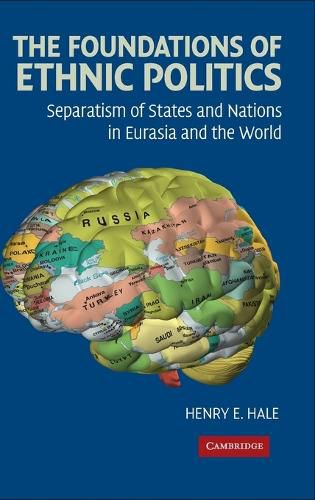Readings Newsletter
Become a Readings Member to make your shopping experience even easier.
Sign in or sign up for free!
You’re not far away from qualifying for FREE standard shipping within Australia
You’ve qualified for FREE standard shipping within Australia
The cart is loading…






Despite implicating ethnicity in everything from civil war to economic failure, researchers seldom consult psychological research when addressing the most basic question: What is ethnicity? The result is a radical scholarly divide generating contradictory recommendations for solving ethnic conflict. Research into how the human brain actually works demands a revision of existing schools of thought. Hale argues ethnic identity is a cognitive uncertainty-reduction device with special capacity to exacerbate, but not cause, collective action problems. This produces a new general theory of ethnic conflict that can improve both understanding and practice. A deep study of separatism in the USSR and CIS demonstrates the theory’s potential, mobilizing evidence from elite interviews, three local languages, and mass surveys. The outcome significantly reinterprets nationalism’s role in CIS relations and the USSR’s breakup, which turns out to have been a far more contingent event than commonly recognized.
$9.00 standard shipping within Australia
FREE standard shipping within Australia for orders over $100.00
Express & International shipping calculated at checkout
Despite implicating ethnicity in everything from civil war to economic failure, researchers seldom consult psychological research when addressing the most basic question: What is ethnicity? The result is a radical scholarly divide generating contradictory recommendations for solving ethnic conflict. Research into how the human brain actually works demands a revision of existing schools of thought. Hale argues ethnic identity is a cognitive uncertainty-reduction device with special capacity to exacerbate, but not cause, collective action problems. This produces a new general theory of ethnic conflict that can improve both understanding and practice. A deep study of separatism in the USSR and CIS demonstrates the theory’s potential, mobilizing evidence from elite interviews, three local languages, and mass surveys. The outcome significantly reinterprets nationalism’s role in CIS relations and the USSR’s breakup, which turns out to have been a far more contingent event than commonly recognized.